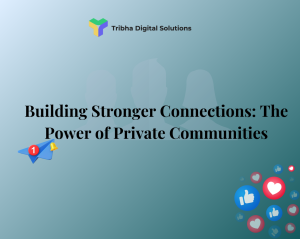Mobile App Development: A Complete Guide 2024
Did you know that on average, over 200 billion mobile apps are developed and downloaded every year? That’s right! In today’s tech-savvy world, mobile applications have seamlessly integrated into our everyday routines, helping us stay connected, shop, eat, entertain, and even work with just a few taps on our smartphones. From ordering groceries on Zepto, and finding restaurants on Zomato, to staying in touch with family on WhatsApp, apps have made life simpler and more efficient.
It’s no wonder then, that businesses of all sizes are jumping onto the mobile app bandwagon to stay relevant, improve customer experiences, and even expand their operations. In this blog, we will take a closer look at mobile app development and why it is such a vital tool for businesses today.
What is mobile app development?
At its core, Best Mobile App Development Services refers to the process of creating software applications that run on mobile devices. These apps can be downloaded from app stores like Google Play or Apple’s App Store, or they can be pre-installed on your smartphone. The development process involves designing, coding, testing, and launching the app to ensure it works efficiently on different mobile platforms like Android and iOS.
While some apps are designed for entertainment, like Instagram or gaming apps, many serve critical functions in e-commerce, finance, healthcare, and more. A well-developed app offers users a smooth and convenient experience, often leading to improved customer satisfaction and loyalty.
The Mobile App Development Process
Developing a mobile app is not just about coding; it involves several stages to ensure the app meets user needs and business goals. Here’s a step-by-step breakdown:
- Idea and Strategy: The first step is coming up with a solid idea for your app. What problem will it solve? Who is your target audience? Once the idea is clear, a strategy is laid out to bring the app to life. This includes market research to understand competitors, identifying the core features of the app, and deciding on the best monetization strategy.
- Designing the App: The design phase focuses on creating intuitive UI/UX Design Services in India. Wireframes (basic app layouts) are created, followed by detailed visual designs. The goal is to ensure the app is both functional and visually appealing.
- Development: This is the coding stage where the app’s functionality is built. Developers write the code to make the app run on specific platforms like Android, iOS, or both. Front-end development deals with how the app looks and feels, while back-end development handles data storage, security, and how the app interacts with servers.
- Testing: Before launching, the app undergoes rigorous testing to identify any bugs, performance issues, or design flaws. Testing ensures the app runs smoothly across different devices, operating systems, and network conditions.
- Launch and Deployment: Once the app passes all tests, it’s ready to be launched in app stores. This involves submitting the app to platforms like Google Play or the Apple App Store. After approval, the app is available for download, but the process doesn’t end here.
- Maintenance and Updates: Post-launch, developers need to continuously monitor the app’s performance, resolve any issues, and release updates to introduce new features or fix bugs.
Why Is Mobile App Development Best for Business?
Whether you’re a startup, a small business, or a well-established company, having a mobile app is no longer optional. It’s essential. Here’s why:
- Increased Customer Engagement: With a mobile app, businesses can engage with customers in real time. Whether it’s sending push notifications, offering in-app promotions, or providing personalized content, apps make it easier to build relationships with users.
- Better Accessibility: Mobile apps are accessible anytime and anywhere, allowing users to interact with your business on the go. This is especially important for e-commerce platforms like Amazon and Flipkart, which rely on app-based shopping.
- Enhanced Brand Visibility: An app that sits on your customer’s home screen serves as a constant reminder of your brand. With proper branding and a great user experience, apps can significantly boost brand recognition and loyalty.
- Direct Marketing Channel: With a mobile app, businesses can provide users with direct information, promotions, and updates, without having to rely on third-party platforms. This is one of the main reasons why mobile apps are a powerful tool for digital marketing.
- Data Collection: Mobile apps allow businesses to gather valuable user data that can be used for marketing, personalization, and improving services. Analytics tools built into apps help track user behavior, preferences, and patterns, allowing businesses to make informed decisions.
Top Technologies Used for Mobile App Development
To ensure the best mobile app development, businesses often turn to the latest technologies that guarantee performance, scalability, and a smooth user experience. Here are some of the top technologies used:
- React Native: React Native is a popular framework developed by Facebook. It allows developers to create apps for both Android and iOS platforms using a single codebase, making development faster and more cost-effective.
- Flutter: Flutter, developed by Google, is another open-source framework that allows for cross-platform development. It’s highly appreciated for its smooth animations and quick load times, which enhance the user experience.
- Swift: For iOS-specific apps, Swift is the go-to programming language. Known for its speed and security, Swift helps in building powerful and feature-rich iPhone applications.
- Kotlin: Kotlin is the preferred language for Android app development. It is a more modern and concise alternative to Java, which is traditionally used for Android apps.
- Artificial Intelligence (AI) and Machine Learning (ML): AI and ML are becoming increasingly popular in mobile apps. These technologies enable personalized user experiences, predictive analytics, and even voice-activated assistants like Siri and Alexa.
What Are the Types of Mobile Apps?
Mobile apps come in different forms depending on the business model and the target audience. Here are the three main types:
- Native Apps:
- Native apps are built specifically for one platform (either Android or iOS). They are known for their speed, reliability, and the ability to access a device’s full range of features. However, they require separate development for each platform, which can be costly.
- Hybrid Apps:
- Hybrid apps are a blend of native and web apps. They are built using web technologies like HTML, CSS, and JavaScript, but can still be installed from app stores. Hybrid apps are faster and cheaper to develop but may not perform as well as native apps.
- Progressive Web Apps (PWAs):
- PWAs are essentially websites that act like mobile apps. They run in a browser but offer app-like functionality such as offline access, push notifications, and fast load times. They are an excellent choice for businesses that want to provide a mobile experience without investing in full-fledged app development.
- Mobile app development has transformed how businesses interact with their customers and how we function in our daily lives. From ordering food on Swiggy to booking travel on apps like MakeMyTrip, mobile apps have changed the game. If you’re a business looking to expand your reach and increase customer engagement, investing in mobile app development is one of the smartest moves you can make.
- With advanced technologies like AI, React Native, and Kotlin, creating powerful, feature-rich apps has become easier. Whether you’re building a native app for iOS, a hybrid app for both platforms or a PWA, the possibilities are endless.
- So, if you’re looking for the best mobile app development services to bring your vision to life, now is the time to take the plunge and transform your business for the mobile-first world! For more information, please contact us.




